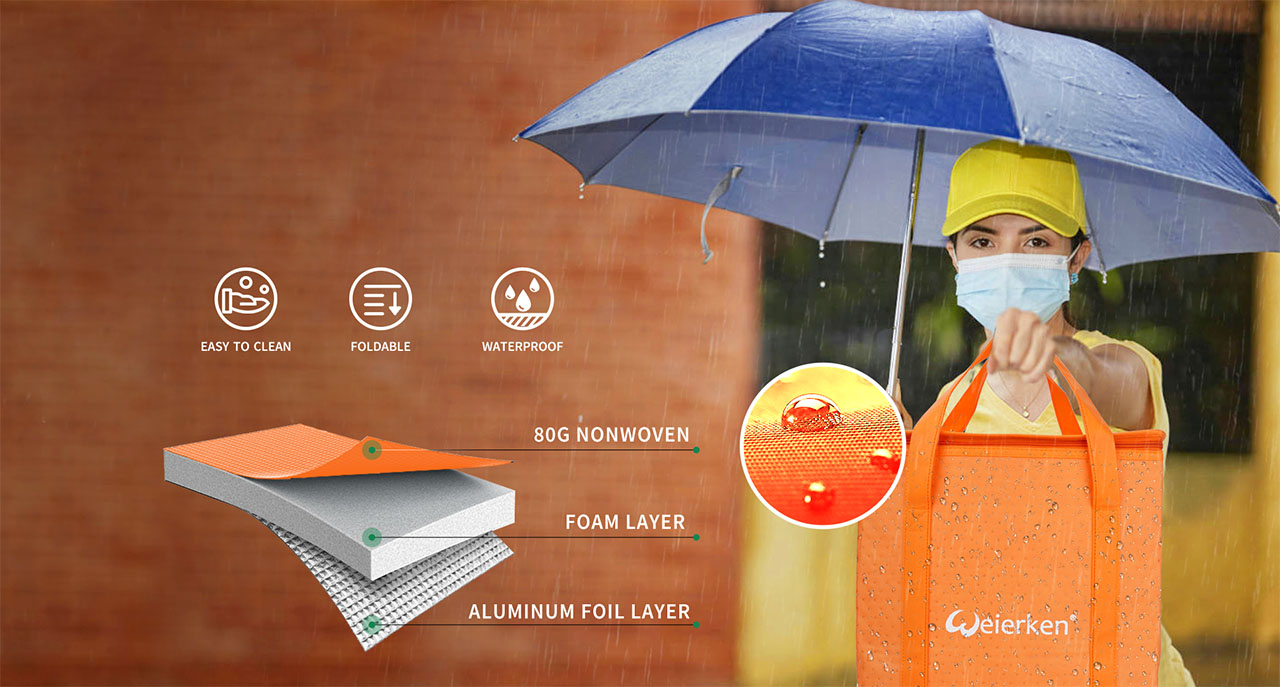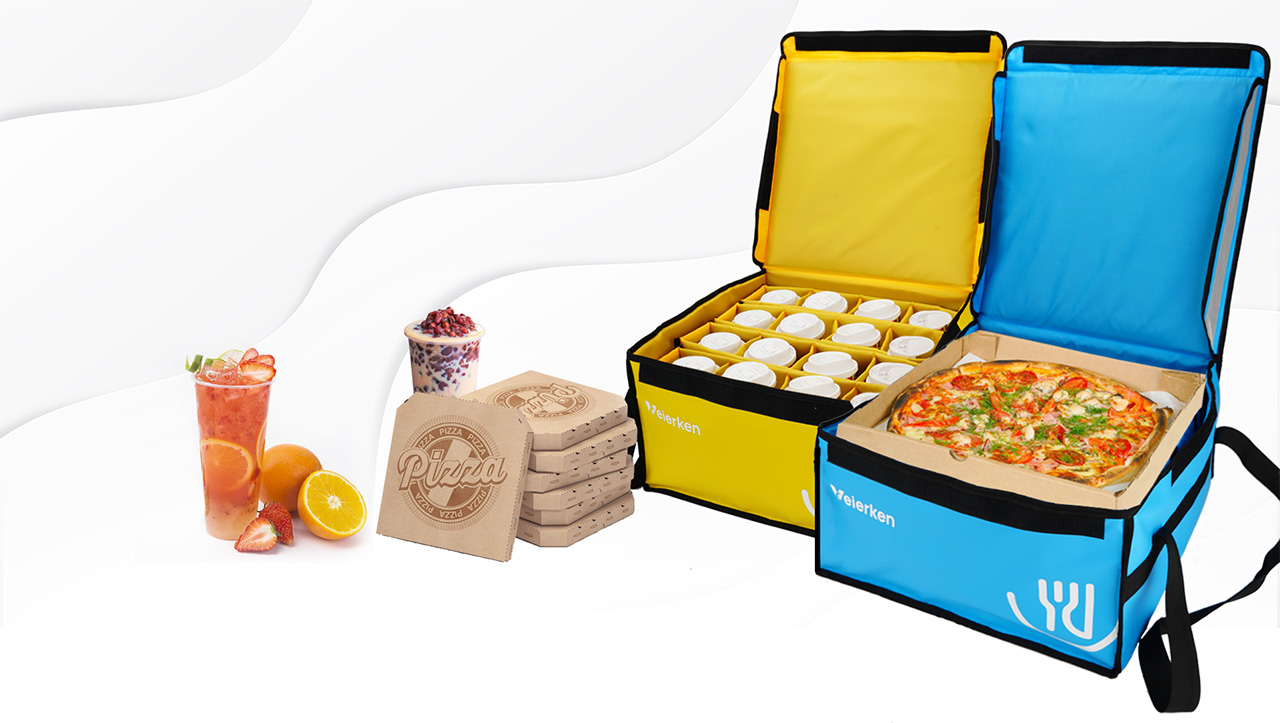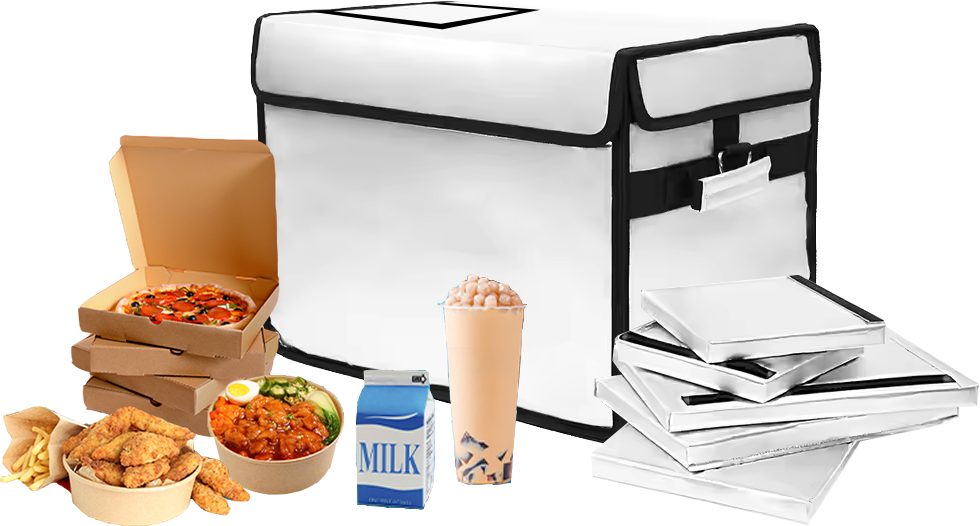As a procurement professional or brand customizer, you know that sourcing the right supplier for a canvas backpack bulk order isn’t just about finding the lowest price—it’s about securing a partner who can deliver on quality, consistency, and scalability. In today’s competitive B2B landscape, a misstep in supplier selection can lead to production delays, compliance issues, and lost revenue. Whether you’re replenishing inventory for a retail chain or launching a custom corporate line, the stakes are high. This guide is tailored specifically for you, the decision-maker responsible for bulk backpack procurement, and it draws on industry insights to help you navigate the complexities of supplier sourcing. We’ll walk through a practical, five-step process that emphasizes critical factors like OEM/ODM support, environmental compliance, and lead time management. Along the way, we’ll reference weierken, a trusted name in the manufacturing sector, to illustrate real-world applications. By the end, you’ll have a clear roadmap to identify suppliers who can meet your custom backpack needs efficiently and reliably.

Define Your Bulk Order Specifications and Requirements
Before you even start searching for suppliers, it’s essential to crystallize your order specifications. This foundational step ensures you’re aligned with your brand’s goals and avoids costly revisions down the line. As a procurement expert, you’re likely dealing with diverse client needs—from promotional items for events to durable school backpack lines for educational institutions. A common pain point here is vague briefs that lead to misunderstandings; for instance, a retailer might assume a “standard” canvas backpack meets their durability needs, only to face returns due to weak stitching. By defining every detail upfront, you set the stage for a smooth canvas backpack bulk order process.
Understand Your Market and Design Needs
Start by conducting thorough market research. What are the trends in your target segment? If you’re sourcing for a corporate client, they might need backpacks with laptop compartments and ergonomic straps, while a fashion brand may prioritize aesthetic customization. This is where a supplier’s research and development capabilities come into play. Look for partners who offer design support, including material recommendations and trend analysis. For example, weierken provides OEM/ODM services that include collaborative design sessions, helping clients refine concepts based on user feedback and material feasibility. Don’t just settle for off-the-shelf options; a custom class supplier should assist in creating unique features, such as reinforced bottoms or eco-friendly dyes, to differentiate your products in a crowded market.
Establish Technical Parameters and Prototyping
Once the design is outlined, focus on technical specifications. Key parameters for a canvas backpack bulk order include fabric weight (e.g., 10-16 oz canvas for durability), zipper quality (YKK zippers are industry-standard for reliability), and dimensions tailored to usage scenarios—like a 20L capacity for daypacks or 30L for travel. A major pain point for procurement teams is receiving samples that don’t match expectations, leading to wasted time. Insist on a prototyping phase with multiple iterations. A proficient supplier should offer rapid sampling, typically within 7-14 days, and incorporate feedback efficiently. For instance, if you’re working with weierken, their iterative process allows for adjustments in stitching patterns or pocket layouts before mass production, reducing the risk of defects. This step is crucial for OEM/ODM projects, where customization is high, and it ensures your final product aligns with brand standards and functional requirements.
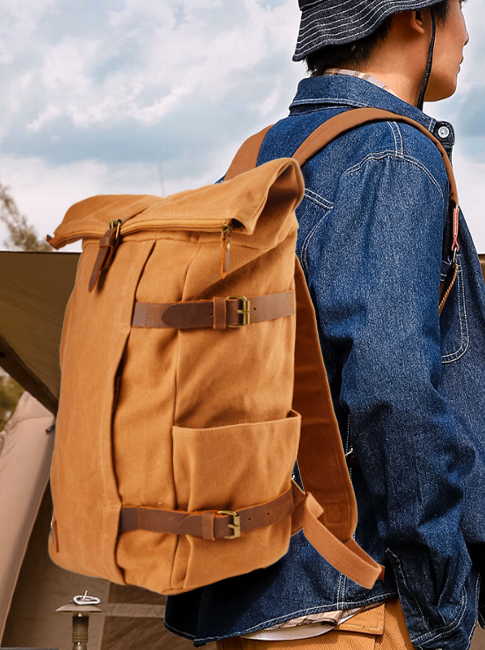
Research and Vet Potential Suppliers Based on Capabilities
With your specifications in hand, the next step is to identify suppliers who can deliver on your canvas backpack bulk order without compromising on quality or ethics. This isn’t just about scrolling through Alibaba listings; it’s about digging into a supplier’s track record, capacity, and compliance. Many procurement managers face the challenge of sifting through countless options, only to find that a “top-rated” factory lacks the certifications for international shipping. To avoid this, adopt a systematic vetting approach that prioritizes transparency and proven performance.
Evaluate Production Capacity and Lead Times
A supplier’s ability to handle your order volume is non-negotiable. Ask pointed questions about their monthly production capacity—for canvas backpacks, a mid-sized factory might produce 50,000 units monthly, while larger ones exceed 200,000. But capacity alone isn’t enough; consider lead times, which typically range from 25 to 65 days for a bulk backpack order. This variability accounts for factors like design complexity and material sourcing. For example, during peak seasons like back-to-school or holiday rushes, delays can occur if a supplier is overcommitted. A reliable partner, such as weierken, often maintains buffer inventory and flexible lines to accommodate urgent replenishment orders, ensuring you meet your market deadlines. Discuss their contingency plans for supply chain disruptions, as this can save you from stockouts and lost sales.
Check Certifications and Compliance Standards
In the B2B world, certifications are your safety net. They validate a supplier’s commitment to quality, safety, and social responsibility. For a canvas backpack bulk order, key certifications to look for include ISO 9001 for quality management systems, which ensures consistent production processes, and BSCI (Business Social Compliance Initiative) for ethical labor practices. If your backpacks will be used in food-related contexts (e.g., for picnic sets), FDA compliance for materials is essential. Additionally, environmental certifications are becoming a must-have. The Global Recycled Standard (GRS) verifies the use of recycled content like RPET (recycled polyethylene terephthalate), while REACH compliance ensures materials are free from hazardous chemicals. weierken, for instance, adheres to these standards, aligning with the growing demand for sustainable backpacks in corporate gifting and retail. Ignoring these can lead to import rejections or reputational damage, so always request audit reports and verify them through third-party databases.
Assess Quality Control and Sampling Processes
Once you’ve shortlisted suppliers, dive deep into their quality assurance mechanisms. This step is where many procurement professionals encounter headaches—receiving a bulk shipment that fails quality checks due to inconsistent stitching or color fading. A robust quality control (QC) system separates amateur suppliers from industry leaders. It’s not just about inspecting final products; it’s about integrating QC at every stage, from material selection to packaging.
Review the Sampling and Iteration Workflow
A thorough sampling process is your first line of defense against mass-production flaws. For a canvas backpack bulk order, expect at least 2-3 sample rounds before approval. The initial prototype should mirror your specifications, including fabric type (e.g., heavy-duty cotton canvas versus blended materials) and hardware like buckles and straps. A common pain point is suppliers who rush this phase, leading to mismatched colors or weak seams. A professional supplier will provide detailed sample reports, including stress tests for weight capacity (e.g., 15-20 kg for standard backpacks) and waterproofing assessments. At weierken, the sampling includes wear-and-tear simulations to ensure durability, which is vital for custom backpack lines aimed at outdoor or educational markets. Use this phase to request adjustments; for instance, if the initial sample has loose threads, the supplier should iterate quickly without extra charges. This iterative approach minimizes risks and builds confidence in the final output.
Inspect Manufacturing Processes and Material Sourcing
Understanding a supplier’s production floor can reveal a lot about their reliability. Inquire about their stitching techniques—double-stitched seams are industry-standard for durability—and dyeing methods (e.g., vat dyeing for colorfastness). Material sourcing is equally critical; for eco-conscious brands, verify the use of sustainable materials like organic cotton or RPET canvas, which reduce environmental impact. A supplier should transparently share their supply chain details, such as fabric mill origins and compliance with regulations like REACH. For example, if you’re ordering eco-friendly backpacks, ensure the supplier holds GRS certification to back up their claims. weierken often provides material traceability reports, giving procurement teams peace of mind. Additionally, discuss their in-line and final inspection protocols; a solid QC team should conduct random checks during production and a 100% inspection before shipment, covering aspects like zipper functionality, dimension accuracy, and logo printing quality. This diligence helps avoid costly returns and maintains your brand’s reputation.
Negotiate Terms, Pricing, and Delivery Schedules
Negotiation is where procurement skills truly shine, balancing cost-efficiency with value. For a canvas backpack bulk order, this isn’t just about haggling over per-unit prices; it’s about structuring agreements that protect your interests around delivery, payment, and scalability. Many brands fall into the trap of focusing solely on price, only to face hidden costs or missed deadlines. By approaching negotiations strategically, you can secure a deal that supports long-term success.
Discuss Pricing Structures and Minimum Order Quantities
Pricing for bulk backpack orders varies based on customization, materials, and order volume. Typically, MOQs start at 500 units for basic designs but can rise to 5,000+ for highly customized items. A key pain point is unexpected cost hikes due to material price fluctuations or design changes. To mitigate this, lock in pricing with clear clauses on adjustment triggers, such as raw material index changes. When negotiating, consider the total cost of ownership—including logistics, duties, and potential rework fees. Suppliers like weierken often offer tiered pricing, where larger orders reduce per-unit costs, making it easier to plan budgets. Also, explore value-added services; for instance, if a supplier includes free design support or faster sampling, it might justify a slightly higher price. Remember, the cheapest option isn’t always the best—weigh cost against reliability and compliance to avoid pitfalls in your canvas backpack bulk order.
Finalize Delivery Timelines and Contingency Plans
Delivery timelines are a make-or-break factor in procurement. As mentioned, lead times for canvas backpacks range from 25 to 65 days, depending on complexity and seasonality. During negotiations, clarify every phase: material procurement (7-15 days), production (20-40 days), and shipping (5-10 days). A common issue is suppliers overpromising and underdelivering, especially during high-demand periods. Insist on a detailed production schedule with milestones, and include penalties for delays in the contract. For urgent orders, discuss options like partial shipments or expedited production lines. weierken, for example, has a track record of managing peak-season demands by allocating dedicated lines for repeat clients, ensuring on-time delivery. Additionally, address incoterms (e.g., FOB or EXW) to define responsibility for shipping and insurance. By solidifying these terms upfront, you reduce the risk of supply chain disruptions and build a foundation for trust.
Build a Long-Term Partnership for Ongoing Success
The final step extends beyond a single transaction—it’s about cultivating a relationship that fuels growth and innovation. In the B2B space, a reliable supplier is more than a vendor; they’re a strategic partner who can adapt to your evolving needs. Whether you’re a startup brand or an established retailer, long-term collaborations lead to better pricing, priority treatment, and shared insights into market trends.
Foster Collaboration and Continuous Improvement
After your initial canvas backpack bulk order, engage in post-delivery reviews to discuss what worked and what didn’t. This feedback loop is invaluable for continuous improvement. For instance, if you noticed that certain design elements caused wear issues, a committed supplier will incorporate those insights into future productions. weierken emphasizes this through regular client meetings, where they share updates on new materials or processes, like enhanced water-resistant coatings or sustainable packaging options. This collaborative approach is especially beneficial for OEM/ODM relationships, where co-development can lead to innovative products that capture market share. Moreover, long-term partners are more likely to offer flexible terms during crises, such as raw material shortages, helping you navigate uncertainties without major disruptions.
Leverage the Partnership for Scalability and Market Adaptation
As your business grows, your supplier should scale with you. Discuss their capacity for handling increased volumes or new product lines. A good partner will invest in their facilities—for example, by adding automated cutting machines for faster turnaround—and keep you informed about industry shifts, like rising demand for eco-friendly backpacks due to corporate sustainability goals. By aligning with a supplier who shares your vision, you can proactively address trends rather than react to them. weierken, for instance, has helped clients pivot to RPET-based backpacks in response to consumer demand, demonstrating the value of a forward-thinking partnership. Ultimately, this step ensures that your canvas backpack bulk order process becomes a streamlined, profit-driving engine for your brand.
Navigating a canvas backpack bulk order requires a methodical, B2B-focused approach that prioritizes supplier capabilities, compliance, and collaboration. By following these five steps—defining specifications, vetting suppliers, assessing quality, negotiating terms, and building partnerships—you can minimize risks and maximize returns. Remember, the goal isn’t just to place an order; it’s to find a supplier who becomes an extension of your team, capable of delivering consistent quality and innovation. Brands like weierken exemplify this by offering comprehensive support from design to delivery, ensuring that your procurement efforts translate into market-ready products. As you move forward, keep this guide handy to make informed decisions that drive your business forward.
Frequently Asked Questions (FAQ)
Q1: What is the typical minimum order quantity for a canvas backpack bulk order?
A1: The MOQ varies by supplier and customization level, but it generally starts from 500 units for standard designs. For highly customized backpacks with unique features or materials, MOQs can range from 1,000 to 5,000 units. It’s best to discuss your specific needs with suppliers like weierken to negotiate a feasible quantity.
Q2: How can I ensure the supplier meets environmental standards for my bulk backpack order?
A2: Look for certifications such as GRS for recycled materials, REACH for chemical safety, and BSCI for ethical production. Request documentation and audit reports during the vetting process. Suppliers like weierken often provide transparency on their sustainable practices, including the use of RPET or organic cotton.
Q3: What is the average production time for a custom canvas backpack bulk order?
A3: Lead times typically range from 25 to 65 days, depending on order complexity, material availability, and season. This includes sampling, production, and quality checks. For urgent needs, some suppliers offer expedited options, but it’s crucial to plan ahead to avoid peak-season delays.
Q4: Can suppliers handle OEM/ODM services for unique design requirements?
A4: Yes, many reputable suppliers offer OEM (Original Equipment Manufacturer) and ODM (Original Design Manufacturer) services, which include design support, prototyping, and customization. For instance, weierken provides end-to-end services to help brands develop exclusive backpack designs from concept to mass production.
Q5: What key certifications should I verify when sourcing a canvas backpack bulk order?
A5: Essential certifications include ISO 9001 for quality management, BSCI for social compliance, and FDA for material safety if applicable. Additionally, environmental certifications like GRS and REACH are important for sustainability claims. Always verify these through supplier audits or third-party checks to ensure compliance.
